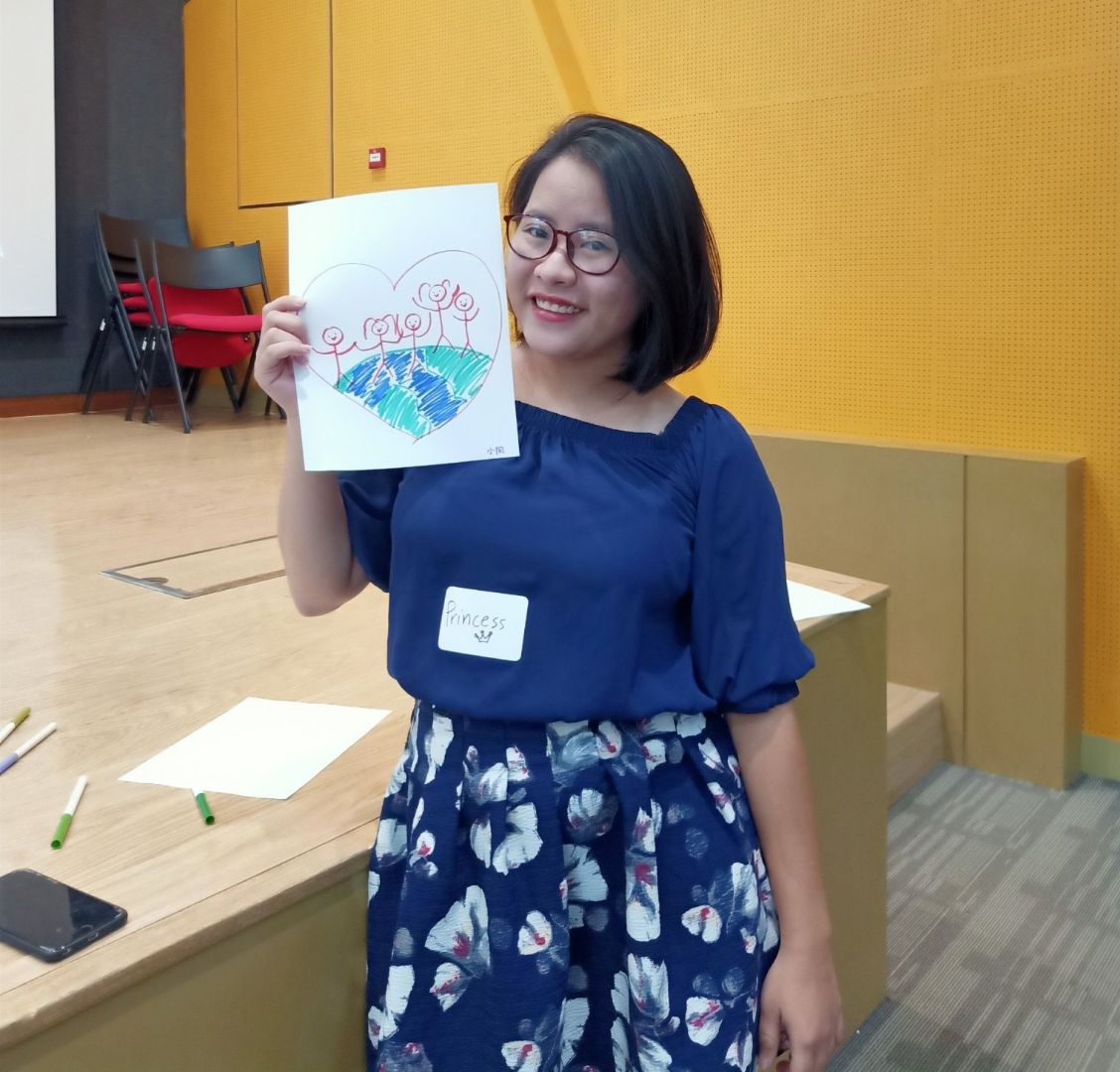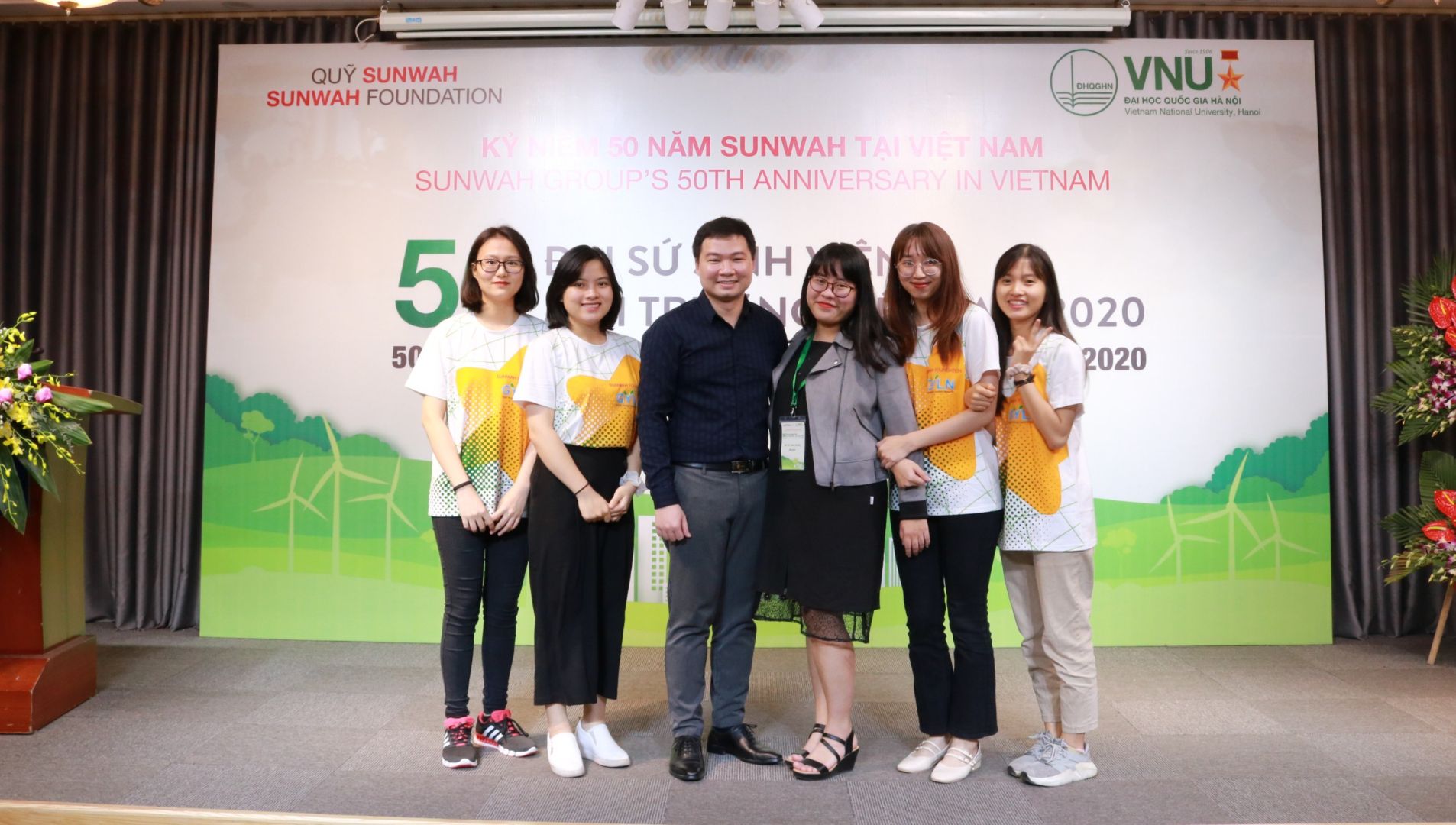This essay was written by Vu Tam Dong, age 24, from Vietnam in response to the 2021 Global Voices essay contest in Southeast Asia. Tam Dong was awarded honorable mention for this entry.

Since Doi Moi, the 1986 national reforms that mark the transition from a centrally planned to a market economy, Vietnam has experienced countless economic, cultural and social changes. When living conditions are being considerably improved, consumers’ capacity to purchase goods and services increases rapidly, especially in urban areas. In recent years, consumerism has encouraged people's desire to shop, even buying what might be considered unnecessary goods. However, in the linear economy, where products are manufactured, sold, consumed, and then discarded within a short period of time, this behavior can lead to serious consequences for the environment, including overexploitation of resources and excessive generation of waste.
Clothing has always occupied an important place as one of the most promising industries. With the development of technology, the emergence of e-commerce platforms, and the popularity of promotional events, Vietnamese people are more attracted to “fast fashion.” The term refers to the quick turnover of high-fashion trends and the mass production of clothing collections with the aim of enabling a large group of customers to purchase the latest fashion items at a low price. The negative side of this convenience is that fast fashion is also a massive polluting sector, usually accompanied by dismal working conditions and uncontrolled globalization. Although the textile sector provides opportunities for economic growth for many and is synonymous with creativity and practicality, no one can deny the severe impacts that it exerts on the environment. Many researchers around the world have shown that the production of fast-fashion clothing has resulted in water and air pollution. Moreover, with the rapid change of fashion trends, clothes that enter the “one-way mechanism” end their inefficient life cycle in landfills quickly. These garments are often made from non-biodegradable synthetic materials that take up to hundreds of years to decompose in landfills.
Taking into account this alarming situation, The GREEN Closet was launched in December 2020 within the framework of the “50 Student Environmental Ambassadors in Vietnam,'' a competition organized by Sunwah Foundation and Vietnam National University in Hanoi. Our project focuses on three main activities. First, the project aims to raise public awareness about the impact of fashion, mainly fast fashion, on our planet while inspiring people to adopt a sustainable lifestyle by building their own “green” wardrobe by applying the “reduce” and “repurpose” rules in the 5Rs of waste reduction. Second, The GREEN Closet provides a platform for young people to donate and buy second hand clothes, thereby incr
To achieve the aforementioned objectives, we launched a call for donations and after just one month, we received more than 1000 items from young people in Hanoi. Due to the evolution of the Covid-19 pandemic, after selling the first 20 secondhand clothes items, we had to stop the platform. However, this challenge is also an opportunity for us to pay attention to other goals like organizing programs to inspire people to environmentally friendly habits. In addition to the precious support of Sunwah Foundation, we received financial aid from Live & Learn Vietnam and British Council to run two online contests: “Your Green Fashion Story” and an online challenge called “Upcycle for 7 days.” Both of them received positive responses by Facebook users. Through these two programs, we have also built a community of people who want to share knowledge about the circular economy and environmentally friendly actions. Because of the pandemic, we had a lot of difficulties in implementing those activities, however, we have gradually professionalized our human resources to prepare for upcoming events. In September of this year, we recruited 15 new members, and we plan to kick off the second term in mid-November with more practical ideas and interesting events.
In the coming months, in order to scale up and scale deep our project, we will need to professionalize our team further. To maintain the platform, The GREEN Closet will be transformed into a formal social venture next year so that we can hire committed part-time employees instead of engaging volunteers alone. To do so, we also need input from experts in the fields of economics and environment, and must set up partnerships with other environmental organizations in Hanoi.
The GREEN Closet has come a long way, and the team has gained more experience and enhanced our soft skills. The most important thing is that we had the opportunity to spread our ideas and help make our community a better place. There is still much work to be done, and there is still room for improvement. However, we believe that our young and enthusiastic team will conquer difficulties and fulfill our mission of environmental protection and community service.